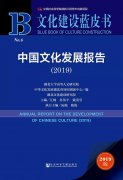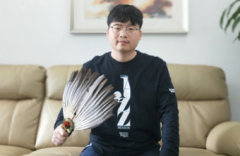

BEIJING, Feb. 15 (Xinhua) -- Several antiviral drugs have been applied in clinical trials against the novel coronavirus disease (COVID-19), and some have shown fairly good clinical efficacy, according to an official Saturday.
Chinese researchers have narrowed down their focus to a few existing drugs, including Chloroquine Phosphate, Favipiravir and Remdesivir, after multiple rounds of screening, said Zhang Xinmin, director of the China National Center for Biotechnology Development under the Ministry of Science and Technology, at a press conference on the new virus.
In vitro experiments have shown that Chloroquine Phosphate, an antimalarial drug which has been widely used for many years, can effectively inhibit the novel coronavirus infection.
It has been known to block virus infections by changing the acidity and basicity value inside the cell and interfering receptors of SARS coronavirus.
It also shows immune-modulating activity, which may enhance its antiviral effect in vivo and is widely distributed in the whole body, including the lungs, after oral administration.
It is now under clinical trials in more than 10 hospitals in Beijing and Guangdong, which enrolled a total of over 100 patients. Clinical trials on the drug will also be launched in central China's Hunan Province soon, Zhang said.
The preliminary clinical results show that Chloroquine Phosphate is quite effective in treating novel coronavirus pneumonia, he said.
Favipiravir, an influenza drug available on overseas markets, has been put in a clinical trial in Shenzhen, south China's Guangdong Province, with 70 patients enlisted, he said.
The initial outcome of the trial shows the drug has relatively obvious efficacy and low adverse reactions.
"Three to four days after treatment, the group that takes the drug has a significantly higher turning-negative rate in the viral nucleic acid than the parallel group," he said.
Remdesivir is developed against Ebola infections by Gilead Sciences, an American pharmaceutical company. It has shown fairly good antiviral activity against the novel coronavirus at the cellular level.
The China-Japan Friendship Hospital and the Institute of Materia Medica under the Chinese Academy of Medical Sciences have been authorized to conduct a clinical trial on the drug in over 10 hospitals in Wuhan, the center of the epidemic in central China's Hubei Province.
The randomized, double-blind clinical trial started on Feb. 6, and about 66 percent of the COVID-19 patients enrolled in the trial will have a chance to take the antiviral drug.
Usually, the ratio of patients taking the trial drug against those in the parallel group is 1:1. However, the ratio in the Remdesivir trial is 2:1, so that more critically ill patients may get better treatment, said Zhao Jianping from the Wuhan-based Tongji Hospital earlier.
The trial will adopt a strict randomized double-blind method, which means both patients and doctors do not know who has taken the trial drug. The effect of Remdesivir will only be revealed after the trial is completed.
The trial will last until the end of April.
"Next, we will make timely recommendations on the COVID-19 treatment according to the results of these clinical trials," Zhang said.
According to him, the researchers scanned more than 70,000 drugs or compounds through computer simulations and in vitro enzyme activity tests, and selected 5,000 potentially effective drug candidates.
Then they were tested at the cellular level against the common coronavirus infection, and about 100 drugs were chosen for further experiments, which helped to select the final drugs for clinical trials, Zhang said.
The most urgent scientific research task is to improve the cure rate and reduce the mortality, which rely on effective clinical treatments, he noted.
New products and technologies have been adopted to treat severe and critically ill patients, a key approach to reduce mortality, and some have achieved good clinical effects, he said.
One of the recent progresses is the development of convalescent plasma. It is processed from the plasma collected from recovered patients, which contains a large amount of protective antibodies.
So far, a total of 11 severe patients from several hospitals in Wuhan have received the convalescent plasma therapy, with all their clinical indicators getting better and no obvious adverse reactions.
Clinical studies on the stem cell therapy, which can inhibit the overreaction of the body's immune system, have also been carried out to treat severe patients, he added.
A cause of death for severe and critically ill patients infected with the COVID-19 is "cytokine storm", which is an overreaction of the immune system, according to Zhou Qi, an academician with the Chinese Academy of Sciences (CAS).
"We are also searching for existing drugs that can curb the appearance of cytokine storm, including drugs against rheumatism. Some of the drugs that are proven effective at the cellular level have been applied in clinical trials," Zhou said at the press conference.
A trial has been conducted on 14 severe or critically ill patients aged up to 82 in an affiliated hospital of the University of the CAS, and the results appeared encouraging, Zhou said.
国内英语新闻:China Focus: China rallies scientific efforts for eff
文章转载链接:http://zmt.designcto.com/waimei/96270.html
想了解更多资讯欢迎进入自媒体联盟官方媒体,自媒体联盟涵盖网络自媒体,网络新媒体,自媒体网站,新媒体网站,媒体发布,媒体投放,媒体平台!

战略军师孙斌:不做大佬只做大佬背后的军师 娱乐圈每

活到老学到老,知识就是力量!这是亘古不变的定律。

战略军师孙斌:窃格瓦拉年薪1500万约等于叶茂中一次策

小心: 这条新闻可能改变你的一生!!! 毫不不夸大宣

2019年9月6日,湖北大学高等人文研究院、中华文化发展

随着实体和网络的全面融合,单纯的实体店的优势已经不